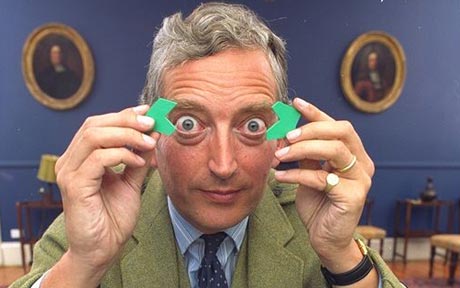If the Viscount of Brenchley says it;
does that mean it HAS to be wrong?
Christopher Walter, the Third Viscount Monckton of Brenchley has been caught once again with his facts around his ankles.
Like others before him, Brigham Young University Professor Barry Bickmore has taken the time to check whether Monckton’s pronouncements can pass any objective standard of accuracy and he has found, “SPOILER ALERT: The final result is classic Monckton” – a carefully constructed, but infuriating opaque veil of academic references, a loose mix of relatively accurate facts, and a conclusion that is precisely contrary to that drawn by the experts whom Monckton claims to quote.
If you read Bickmore’s excellent and careful analysis, however, you get a reminder of why Monckton is successful in destroying people’s understanding of climate science. Per his usual form, he makes a short, ridiculous assertion, dressed in the cloak of implied scientific research and dares you to disagree. Specifically, he said this to a committe of the U.S. Congress:
The “global warming” that ceased late in 2001 (since when there has been a global cooling trend for eight full years) had begun in 1695, towards the end of the Maunder Minimum, a period of 70 years from 1645-1715 when the Sun was less active than at any time in the past 11,400 years (Hathaway, 2004). Solar activity increased with a rapidity unprecedented in the Holocene, reaching a Grand Solar Maximum during a period of 70 years from 1925-1995 when the Sun was very nearly as active as it had been at any time in the past 11,400 years (Hathaway, 2004; Usoskin, 2003; Solanki, 2005).
It’s a mere 105 words of not quite deathless prose and a fairly clear conclusion – but, as Bickmore discovered, not one that is justified by any of the sources he has quoted. Unfortunately, it probably took Bickmore a week’s work to chase down all the references, to touch base with the experts in question and to report – in 3,500 words – the predictable result. Monckton has completely misrepresented his material – again.
All praise to Bickmore, though, for doing the work – for reconfirming that Monckton cannot be trusted. I’m also pleased to see that Bickmore has revived the link to the story in the Scotsman in which Monckton is admits that he lied about having to put his house on the market because he wanted to rustle up publicity for his latest puzzle. It’s also worth reading Bickmore’s own account of trying to sort out this event directly with Monckton (see the wonderfully titled post: Dance Monckey!)
It appears that once Bickmore had Monckton caught dead to rights in the lie, Monckton accused Bickmore of launching an ad hominem attack. The good professor was doing no such thing. He was calling Monckton a liar, which is entirely relevant to the underlying question. Monckton promotes himself as an expert (though he has no expertise). He suggests that his views on climate change are credible. Hence, his credibility is a perfectly reasonable issue to explore. And while it may sound like unParliamentary language to call Monckton a liar, Bickmore can claim the defence of truth (especially when Monckton himself has admitted lying). Besides, NOBODY would let Monckton into a Parliament in any case, though he has lied about that, as well.
Which makes me wonder: Just how much of a disingenuous twit must you be before the climate denial community stop inviting you ‘round for dinners?
Subscribe to our newsletter
Stay up to date with DeSmog news and alerts






